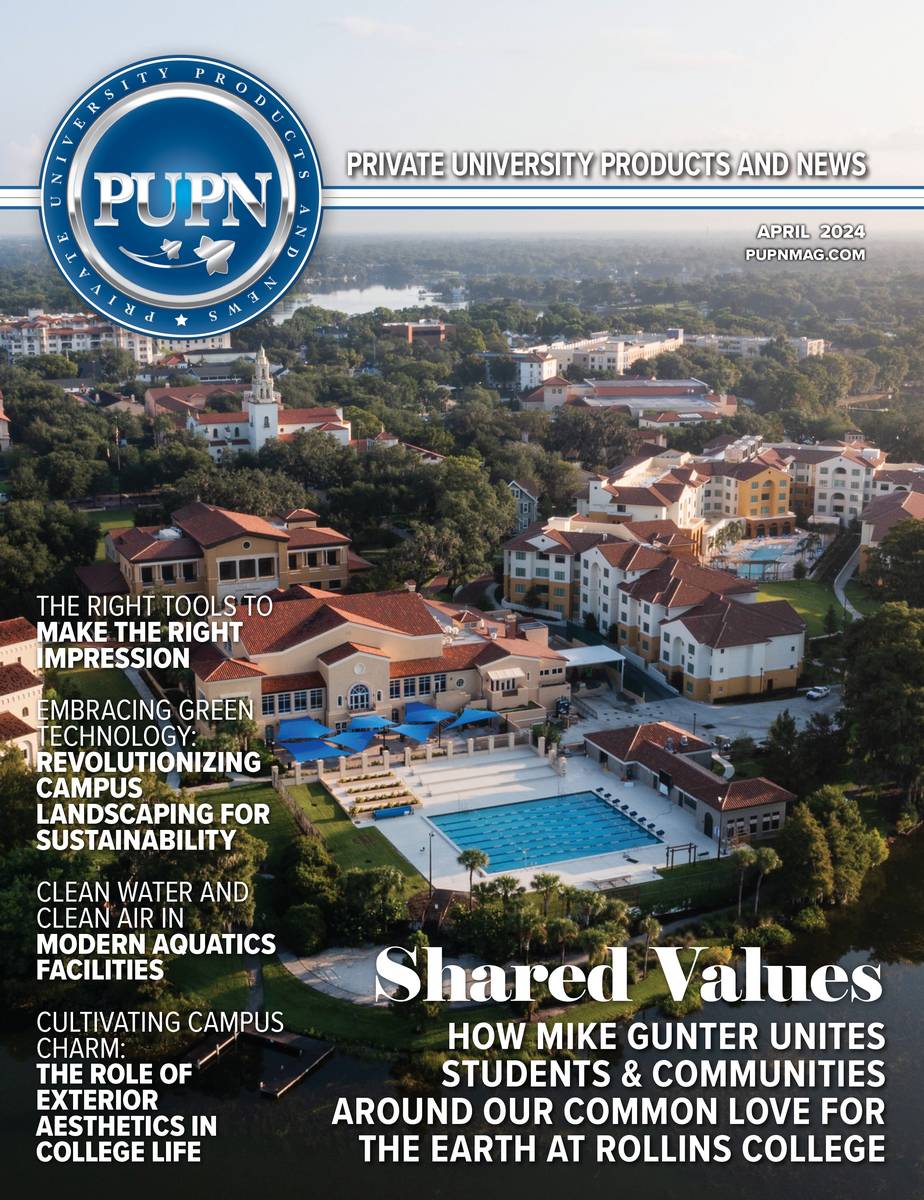The Largest Scholarship Gift in NYU Stern’s History Will Eliminate Tuition Burden for Recipients
New York University’s Stern School of Business unveiled a landmark gift of $50 million, the largest scholarship gift in the School’s history, from the Berkley Family Foundation, established by alumnus William R. Berkley and his wife Marjorie. The gift will provide scholarships to students in Stern’s top-ranked Undergraduate College through a brand-new program to be called the Berkley Achievement Scholars Program. William R. Berkley is the current Chairman of NYU’s Board of Trustees, an NYU Stern alumnus (BS 1966), Chair Emeritus of NYU Stern’s Executive Board, and the founder of W. R. Berkley Corporation, a Fortune 500 commercial lines property and casualty insurance holding company based in Greenwich, Connecticut.
Beginning with the class entering in fall 2022, the Berkley Achievement Scholars Program will increase access to a Stern education for talented students with financial need, enabling, at any given time, more than sixty Berkley Scholars from across the United States and representing the full cross-section of the country, to attend the Stern Undergraduate College tuition-free.
NYU President Andrew Hamilton said, “From my earliest days as NYU’s president, in speaking with students, deans, families, and faculty, it was clear that we should set affordability as one of our foremost priorities, and we have. As Board Chair, Bill Berkley has backed that effort to the hilt, in no small measure because he knows so well from his own experience how a scholarship can alter the course of a young life and how an NYU education can be an engine of social mobility. This is a leadership gift in every sense of the word, the largest for much-needed undergraduate scholarship aid in NYU’s history. Bill has given us so many reasons over the years to be grateful to him, but we owe him special thanks for this wonderful and generous gift.”
“Bill’s vision and extraordinary generosity will not only profoundly impact the lives of hundreds of students over the years, it will help us make NYU Stern’s outstanding educational experience more accessible to those with demonstrated potential to lead. Stern has a legacy as a school ‘open to all’ and today we celebrate furthering that legacy with this landmark gift from one of our most extraordinary and dedicated alumni,” said NYU Stern Dean, Raghu Sundaram.
”As a former Chair of Stern’s Executive Board, Bill Berkley has been a role model for the School in countless ways. And now with this historic gift, he is making a Stern education possible to deserving students who would not otherwise be able to attend,” said Andre Koo, Chair of the Stern Executive Board.
William R. Berkley graduated from NYU in 1966 and started giving back to his alma mater shortly thereafter. Over the following five decades, he has had a transformative impact on NYU, the Stern School of Business, and hundreds of scholars across the University. His ongoing generosity and service is largely driven by his own personal experiences as an NYU Stern student. Bill has served, and continues to serve, in leadership roles across NYU, the Stern Executive Board, the NYU Langone Health Board of Trustees, and the NYU Board of Trustees (of which he is currently Chairman). Bill’s dedication to Stern and NYU is evident in his unwavering support of NYU’s most pressing priorities from professorships and scholarships to centers and facilities. Some notable examples at Stern include the William R. Berkley Professorships in Economics, the Berkley Center for Entrepreneurship, and the William R. Berkley Scholarship Program for MBA students.
“When I was admitted to Stern, I was the beneficiary of a scholarship that gave me the chance of a lifetime to study tuition-free. I often think about this extraordinary opportunity that dramatically impacted the path of my life, and I am fortunate to be able to pay it forward. I am pleased to build on NYU Stern’s efforts to tackle the problem of unequal access to higher education by opening doors for young people with talent and determination who simply need an investment in their future. Empowering people changes the world,” said Bill Berkley.
Stern’s Undergraduate College is one of the country’s leading undergraduate business programs, ranked #3 by Poets & Quants and #5 by US News & World Report among undergraduate business schools. With over 15,000 applications for its 600+ spots and a median SAT (math and verbal) of 1540, the Undergraduate College attracts the best and brightest from around the world, and offers them an exceptional educational experience guided by five pillars – Academics, Global Perspective, Social Impact, Professional Development, and Community.
Vanderbilt Announces Demolition of Final Carmichael Towers Buildings
by Katherine Keith
After delaying demolition due to the COVID-19 pandemic, Vanderbilt University is moving forward on its plan to demolish Carmichael Towers East residence hall with a controlled implosion on Saturday, July 31.
The implosion of the 14-story Towers 1 and 2 is scheduled for 9 a.m. The approximately 15-minute process will be overseen by Layton Construction LLC, which is conducting ongoing construction in Vanderbilt’s West End Neighborhood, and Controlled Demolition Inc. (CDI), a national leader in large-structure controlled demolition.
The removal of Carmichael Towers 1 and 2, to make way for a new residential college in the West End Neighborhood, aligns with Vanderbilt’s Academic Strategic Plan, a key pillar of which is to strengthen the undergraduate residential experience, and with FutureVU, the university’s initiative to enhance the places on campus where community members live, work and learn. Residential College C, which is scheduled to open for fall 2024, will be the fourth residential college along West End Avenue. The E. Bronson Ingram College opened in 2018, Nicholas S. Zeppos College opened in fall 2020, Rothschild College will open for fall 2022.
These residential colleges will build upon the successful living-learning environments already in place at The Martha Rivers Ingram Commons, Warren College and Moore College. “We continue to explore ways to connect our students, faculty, and staff as they forge the learning experience together,” said Vanessa Beasley, vice provost for academic affairs and dean of residential faculty. “Residential colleges give students the opportunity to learn from each other, become more connected, and benefit from the resources and wisdom available in the broader Vanderbilt community.”
The design for all residential colleges in the West End Neighborhood will give the area a more park-like feel and augment a positive community atmosphere. The university has redeveloped the area to add green space, pedestrian- and bike-friendly pathways, and tiered areas ideal for studying, relaxing, and hosting outdoor gatherings. The implosion event will necessitate temporary road closures the morning of July 31. University and Nashville police will be on site, and a blast perimeter will be established to keep the public at a safe distance. Occupants of buildings within close proximity to the implosion will be evacuated or mandated to remain indoors. Once the implosion and checks to the site and surrounding areas are complete, traffic will reopen and mandatory restrictions will be lifted.
In their place on West End Avenue between 23rd and 24th avenues, Carmichael Towers 1 and 2 have been home to tens of thousands of students since their opening in 1966. Named in memory of the university’s third chancellor, Oliver Cromwell Carmichael, the residence halls housed undergraduate students.
A New Chapter: Ohio Wesleyan Announces $11.25 Million Renovation of Iconic Slocum Hall
by Cole Hatcher
On June 20, 1898, Ohio Wesleyan University dedicated Slocum Hall as its new campus library—a spacious, modern building with a leaded glass ceiling that still draws gasps of wonder and delight from first-time visitors.
One hundred and twenty-three years later, Slocum Hall is beginning a new chapter as it undergoes an $11.25 million, donor-funded renovation to add modern amenities and redefine its future. “This is a momentous project for Ohio Wesleyan, and I am grateful to our donors for helping us fully renovate and preserve a building beloved by generations of OWU alumni,” said President Rock Jones, Ph.D.
“When it reopens in fall 2022, Slocum Hall will become the home of the Career Connection, which works with students throughout their time at the university to secure internships, build resumes, and develop the career-readiness skills that will set them apart,” Jones said. “Slocum Hall also will continue to house our Offices of Admission and Financial Aid, helping prospective students and families explore Ohio Wesleyan and learn more about our impressive educational outcomes all in one place.”
The renovated building also will house the Department of Africana, Gender, and Identity Studies as well as the university’s Honors and Scholars programs, classroom space, and a lounge/study area in its iconic Reading Room.
When the 29,076-square-foot building reopens, it will feature modern amenities including air-conditioning, an elevator, second- and third-floor restrooms, and updated mechanical, electrical, plumbing, and technology systems.
The work will include making the building fully compliant with the Americans with Disabilities Act, adding a sprinkler system, and cleaning and repairing Slocum Hall’s iconic 70-foot-by-20-foot leaded glass ceiling. Schooley Caldwell of Columbus is serving as the project architect, and Setterlin Building Co. of Columbus is overseeing the renovation. Slocum Hall is named in recognition of its original donor, Charles Elihu Slocum, M.D., of Defiance, Ohio. Before the building was designed and constructed, Dr. Slocum and then-Ohio Wesleyan President James W. Bashford, Ph.D., visited more than forty college libraries in the United States and Canada to help plan the three-story, white Bedford limestone structure.
Slocum Hall’s 21st-century restoration and renovation is being supported by several donor gifts including a $10 million contribution from an anonymous alumni couple. Their contribution, announced previously, is the largest single outright gift in Ohio Wesleyan history.
Additional gifts supporting Slocum Hall include $1 million pledged in May by OWU Board of Trustees Chair John F. Milligan, Ph.D., and Kathryn Bradford Milligan, both members of the Class of 1983, and $500,000 from Robert W. Gillespie and Ann L. Wible Gillespie, who graduated from the university in 1966 and 1967, respectively.
Teaching and Learning Institute Plans to Carry Forward Lessons From Remote and Hybrid Learning at Bryn Mawr
When what was to become Bryn Mawr’s Teaching and Learning Institute (TLI) was created in 2006, it was conceived as part of a larger initiative to build community and enrich education on campus through fostering dialogue and collaboration among faculty, staff, and students.
When the COVID-19 pandemic caused campus to empty out and a shift to remote learning occurred, student partners from across nine different institutions with pedagogical partnership programs, including students in the TLI’s Students as Teachers and Learners (SaLT), joined together for discussions about how to navigate—and support their faculty partners in navigating—this unprecedented shift.
These student partners—from Bryn Mawr College, Florida Gulf Coast University, Haverford College, Reed College, Smith College, Tufts University, University of Denver, Ursinus College, and Vassar College—generated a set of recommendations that was shared widely and posted on the websites of teaching and learning centers on other college campuses. Several student partners from these institutions also authored—or co-authored—with faculty essays on their experiences of the unprecedented shift to remote and hybrid teaching and learning under pandemic conditions.
And while this month likely marks the end of the majority of remote learning for Bryn Mawr’s students and faculty as plans are in place for a return to the classroom in fall 2021, those involved in this work hope that many of the practices found to be most effective in a remote environment will continue in traditional classrooms.
“Whether instruction is happening over Zoom or face to face, research has shown that it is the students who feel respected and heard in the classroom who develop the personal agency and sense of belonging that are essential for success in college,” says TLI founder and Professor of Education Alison Cook-Sather.
Rihana Oumer ’21 is a chemistry major at Bryn Mawr who took part in SaLT during the fall 2020 semester and worked with Assistant Professor of Dance Lela Aisha Jones, who was teaching the hybrid course Diasporic Bodies, Citizenship, and Dance as part of the 360°: Centering Critical Blackness.
“I appreciated the value that was placed in every student’s voice and what they brought to class,” says Rihana. “For example, students were voting on what readings they would like to discuss. After each person shared which of the readings they were eager to talk about, they would be put into breakout groups based on their interest.”
After each group had their individual discussions, the class would come back together to start a larger group discussion based on what was talked about in the smaller groups.
“This gave the students agency, a chance at collaboration, and flexibility, and is the sort of thing that could be carried over to a traditional in-person class,” says Rihana.
As a relatively new faculty member, Jones says working with students through the SaLT program has helped her grow tremendously.
“I know that I would have made it through without TLI, but I have a better understanding of the student community and can be a better resource for them thanks to the program,” says Jones. “Rihana helped me see and understand things from different perspectives so that I could better include everyone in course activities and learning.”










